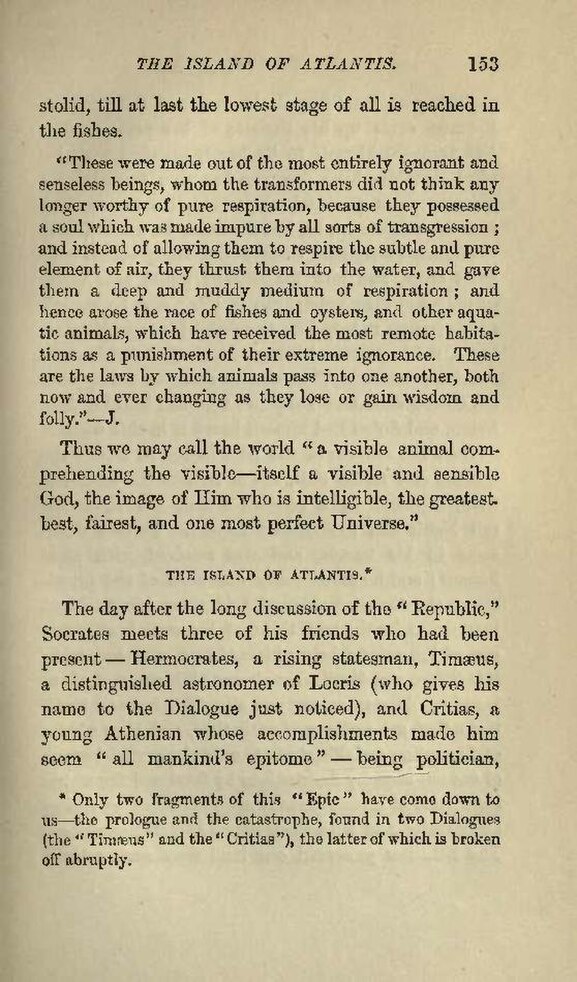stolid, till at last the lowest stage of all is reached in the fishes.
"These were made out of the most entirely ignorant and senseless beings, whom the transformers did not think any longer worthy of pure respiration, because they possessed a soul which was made impure by all sorts of transgression; and instead of allowing them to respire the subtle and pure element of air, they thrust them into the water, and gave them a deep and muddy medium of respiration; and hence arose the race of fishes and oysters, and other aquatic animals, which have received the most remote habitations as a punishment of their extreme ignorance. These are the laws by which animals pass into one another, both now and ever changing as they lose or gain wisdom and folly."—J.
Thus we may call the world "a visible animal comprehending the visible—itself a visible and sensible God, the image of Him who is intelligible, the greatest, best, fairest, and one most perfect Universe."
THE ISLAND OF ATLANTIS.[1]
The day after the long discussion of the "Republic," Socrates meets three of his friends who had been present—Hermocrates, a rising statesman, Timæus, a distinguished astronomer of Locris (who gives his name to the Dialogue just noticed), and Critias, a young Athenian whose accomplishments made him seem "all mankind's epitome"—being politician,
- ↑ Only two fragments of this "Epic" have come down to us—the prologue and the catastrophe, found in two Dialogues (the "Timæus" and the "Critias"), the latter of which is broken off abruptly.
